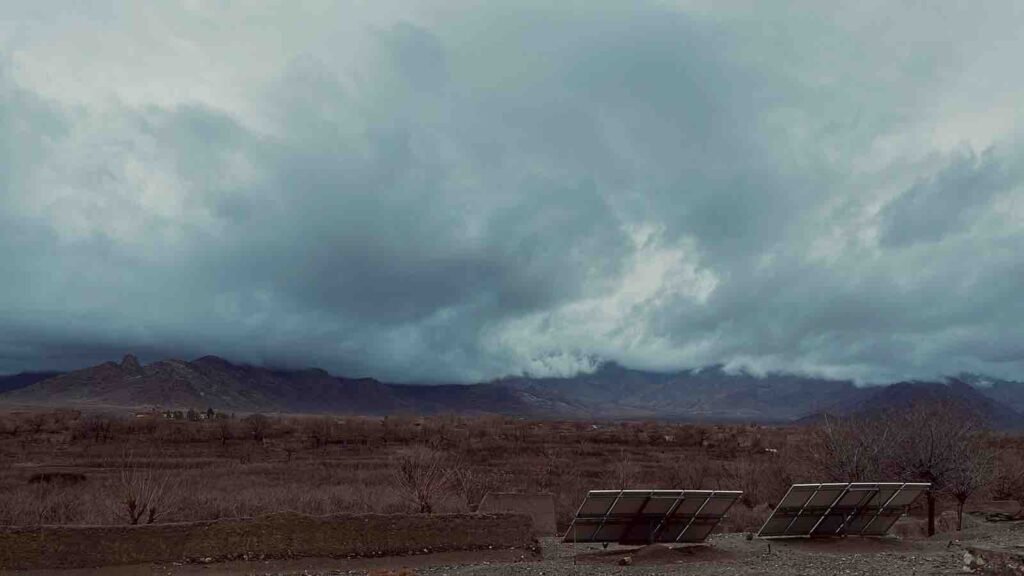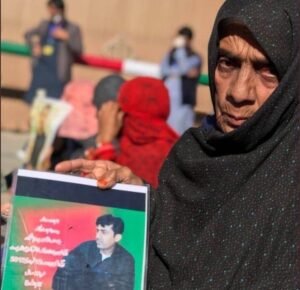Lost and Forgotten: The Continuing Tragedy of Balochistan’s Missing Persons

Photo by @AADIL for ADN
By Kadeem Baloch
Balochistan, a province rich in natural resources in Pakistan, has long been the epicenter of political unrest and human rights violations. The forced disappearance of individuals, who raise their voice for rights of the locals, allegedly at the behest of the Pakistan Army, remains a grave concern. Recent incidents highlight the continuing plight of Baloch families seeking justice for their missing loved ones.
Zaheer Ahmed, an employee of the postal services, disappeared on June 27 from Zarghoon Road while returning home from work. His wife, in a desperate plea, urged the government and law enforcement agencies to ensure his recovery. At a press conference, she stated, “If there are allegations against my husband, he should be produced in a court.” She revealed that their home had been raided multiple times without any justification. Despite approaching the Sariab police station to file an FIR, no case has been registered, leaving the family in a state of anguish and uncertainty.
On June 21, seven individuals were kidnapped from a picnic spot in Harnai district. Their family members staged a protest in front of the Balochistan Assembly, demanding their safe return. This protest followed another demonstration in Quetta’s Red Zone, which turned violent as security forces intervened with force. Family members and leaders from the Baloch Yakjehti Committee (BYC) expressed their determination to continue peaceful protests despite aggressive tactics used against them, including tear gas, baton charges, and gunfire, resulting in numerous injuries and arrests.
Leaders of the BYC condemned the authorities for their brutality against peaceful protesters, including women and children. They demanded concrete evidence about Zaheer Ahmed’s disappearance and criticized Interior Minister Zia Langove for his dismissive press conference. The committee vowed to continue their sit-in until their demands were met, including the release of all detainees and the return of confiscated items. They emphasized that even peaceful demonstrations calling for the return of missing loved ones are not tolerated, reflecting the state’s repressive approach to dissent.
MNA Mahmood Khan Achakzai condemned the police’s violent crackdown on the peaceful protest, emphasizing the need for a political solution to Balochistan’s issues. He warned that the state’s heavy-handed tactics would fuel further resentment among the Baloch people and stressed that peace could never be achieved if the state continued to mistreat Baloch women and peaceful demonstrators. Achakzai argued that using force against unarmed protesters would only escalate tensions and deepen mistrust.
Dr. Naseem Baloch, Chairman of the Baloch National Movement, accused the Pakistani state and military forces of escalating violence against innocent people. He criticized the ongoing practice of enforced disappearances and brutal crackdowns on peaceful protests.
“The shooting, baton-charging, and teargassing of protesters demanding Zaheer Ahmad’s release is blatant state terrorism,” he declared.
Dr. Baloch emphasized that the Baloch people are determined to continue their struggle for their rights, drawing strength from their historical resilience.
The Baloch Students Organization-Azad condemned the security forces’ attack on the protestors, describing it as an attempt to silence the growing political consciousness among the Baloch people. They highlighted the state’s use of enforced disappearances and violent crackdowns as a means to maintain control over Balochistan. The organization called for human rights groups to take note of the state’s oppressive tactics and urged the Baloch people to continue their resistance.
Families of victims of enforced disappearances, along with BYC leader Sibghatullah Shah Ji, announced a protest in Turbat to demand the recovery of missing persons and condemn the violence against Baloch women in Quetta. Shah Ji accused Pakistani security agencies of transferring forcibly disappeared persons to police custody, who then file fabricated cases against them. He cited the case of Khalid Bijar, a disabled and ill young man from Merri Nig, who was recently forcibly disappeared, and an FIR was registered against him on fabricated charges.
The issue of enforced disappearances in Balochistan continues to plague the region, with families of the victims relentlessly protesting for justice. Despite ongoing demonstrations and international attention, Pakistani establishmentoften denies the allegations and fails to provide substantial evidence or solutions.
The author chooses a pseudonym. Kadeem Baloch is a freelance journalist based in Pakistan.
Note: The contents of the article are of sole responsibility of the author. Afghan Diaspora Network will not be responsible for any inaccurate or incorrect statement in the articles.











